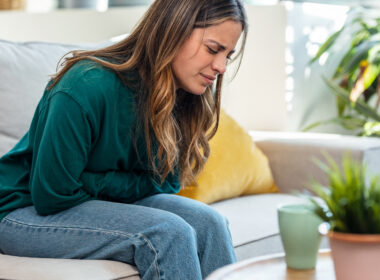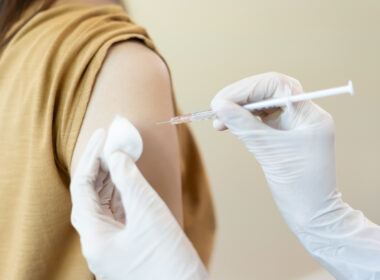How the Pill messes with women’s minds
Why does the Pill cause depression
Can the Pill make you angry
These are just a few of the over 500 search terms about the side effects of “the Pill” being searched online every day. The range of health issues associated with the Pill are troubling—acne, anxiety, depression, libido loss, suicidal thoughts, among many others. Women experiencing these symptoms in real time are searching for answers from the privacy of their phones. It reveals far more about the troubling state of modern women’s health than we might think.
Women are seeking better family planning options than hormonal birth control
While 15.9 percent (11 million) of American women between the ages of 15-44 are currently using the Pill, this figure doesn’t include the millions more who are using other forms of hormonal birth control like the patch, coil, or IUD. With so many women relying on hormonal contraception, why haven’t scientists come up with a better solution?
When a 2017 study revealed a link between the Pill and an increased risk of suicide, women reported feeling dismissed after they brought these issues up with their doctors. It’s no surprise then that women also began to seek other alternatives on their own. Enter “digital contraceptives” in the form of smartphone apps that track a woman’s fertility.
One of these apps, Natural Cycles—the first to be approved as a form of contraception by the FDA last month—was banned in the UK from marketing itself as “highly accurate” after receiving complaints about its ineffectiveness. Over the course of a Swedish investigation, over 600 Natural Cycles app users reported unintended pregnancies, although some reports were flawed.
It’s easy to place the blame on the method, but with “Femtech”—women’s health technology—expected to grow into a fifty-billion-dollar industry by 2025, we can and should do better for women seeking alternative solutions to the Pill; preferably ones not involving panic attacks, blood clots, and other serious side effects.
Women need more knowledge than an app can provide
If we want to empower women to practice family planning naturally, without hormonal birth control, we need to train them to know more about their health and what’s going on in their bodies—that is, teach them how to chart their biological signs and understand what each sign tells them about their cycles, which is more than apps can provide.
Natural Cycles’ founder, Elina Berglund, recently tells The New Yorker, “Thanks to the algorithm, this old and simple method becomes more effective and also easier for average women to use because she doesn’t have to learn a whole bunch of things before using it, so the human error also decreases.”
Apps like Natural Cycles are certainly healthier options than the Pill for women, but there’s reason to believe that we can still do better in educating women about their cycles. As a holistic women’s health professional, Laura Brown, recently told CNBC in a video interview, women need to be more active and less passive in the process of fertility awareness. “Your phone is kind of averaging everything out,” Brown says, “but it’s not really tracking you. You have to take it upon yourself to write down the distinct details of your cycle, to really know what’s going on.” Ilene Richman, the executive director of the Association of Fertility Awareness Professionals, would agree that it’s not the app but the human behind it that should determine its effectiveness. Richman, who has been teaching Fertility Awareness-Based Methods since 2001, tells The New Yorker, “I don’t just want to see the use of apps and devices for Fertility-Awareness-Based Methods…I want that to take place within the context of better-informed, more equitably distributed health care.”
Areas of improvement for healthcare providers when it comes to Femtech
When it comes to improving health care for women, we should all want and demand the same of the women’s technology developing along with it. This starts with proactively asking our doctors to provide more information and services when it comes to better, healthier, and more effective alternatives of family planning such as Fertility Awareness-Based Methods. It also means demanding more funding for research toward Femtech that can be better supported by healthcare providers and insurers.
The Pill is imperfect and will never be enough for women. But improving the availability and accurate use of Fertility Awareness-Based Methods has so much untapped potential during a time when doctor’s offices are moving into our living rooms (via telephone and video consultations) and digitized health records can literally be made available to researchers and doctors across the globe. To better serve women, Femtech must prioritize an educational component for greater understanding of women’s fertility. If Berglund’s Natural Cycles app can make it into our palms all the way from Sweden, women all over the world can hold a highly accurate and hormone-free method of birth control in their hands too.
Put your Femtech to work more effectively for you- learn from a trained instructor first
If you’re using an app to track your cycle, that’s a step in the right direction, but if you haven’t been personally trained by a certified instructor of a Fertility Awareness-Based Method, check out the local and online classes available here. There’s a lot more to gain in knowledge about ourselves than an algorithm can provide. And there’s something empowering about being able to know where you are in your cycle, whether or not your phone battery is charged.
This article was last updated on June 28, 2022.







